Hydration for Breastfeeding: What You Need to Know
- April 17, 2024
- Last Updated: April 17, 2024
- 0 Comments
- Pregnancy & Postpartum
If you’re a nursing mom, you may be wondering about the effects of hydration for breastfeeding, and how hydration affects breast milk. This blog post walks you through everything you need to know about how to stay hydrated when breastfeeding.
As an Amazon Associate, I may earn from qualifying purchases. You can read more here on our Disclaimer and Privacy Page.
As a three-time breastfeeding mom and a Registered Dietitian, I’m well aware of the increased thirst needs during pregnancy and breastfeeding.
Hydration for breastfeeding moms is so important!
When breastfeeding, I was always extra thirsty and found myself chugging water every so often, rather than gradually drinking it throughout the day.
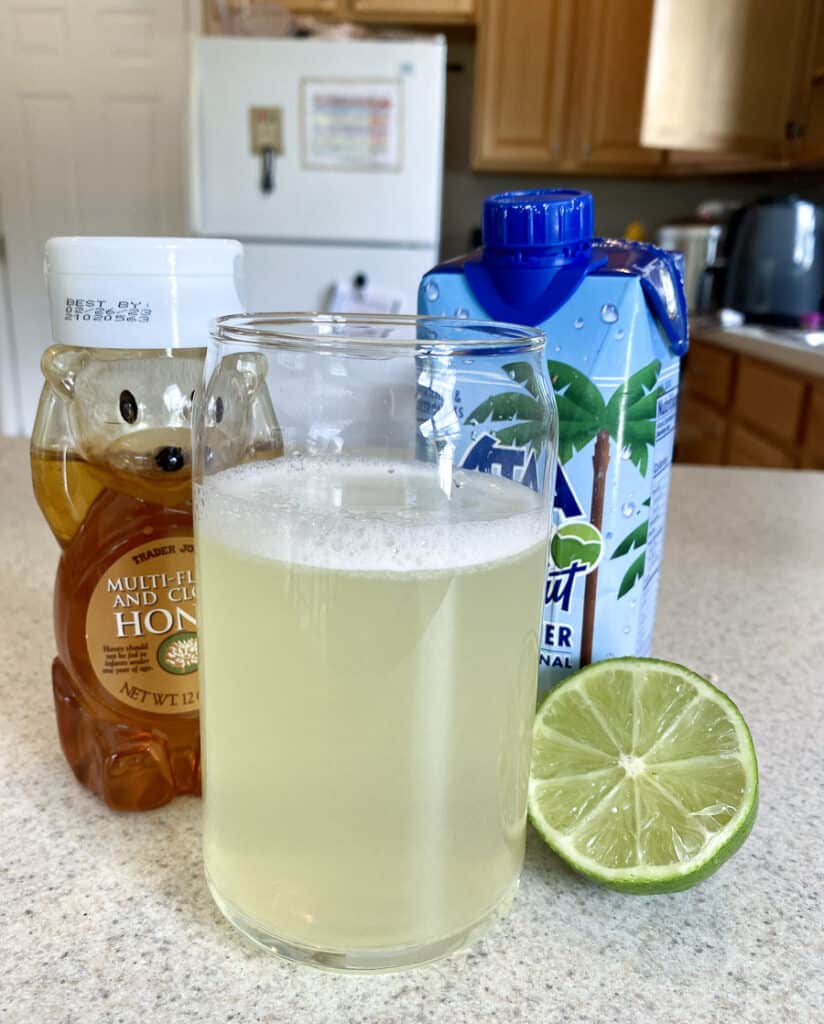
Not that one way is right or wrong – our hydration needs vary and depend on several factors, including physical activity level, weight, birth recovery, diet, etc.
However, the recommended water intake for breastfeeding is higher, as expected, due to the extra liquids you are producing when lactating.
Think of it as a form of postpartum self care.
Hydration for breastfeeding is important and this post will review how you can stay on track of your hydration when breastfeeding your baby.
Why is Hydration Important for Breastfeeding?
What is hydration, anyway? How do you know you are adequately hydrated?
Hydration refers to the balance between water intake and output.
Essentially, when you are hydrated, the intake is not below the output, but instead higher than, resulting in adequate urine.
Regardless of if you are breastfeeding or not, you probably know that hydration is important. But why is water so important?
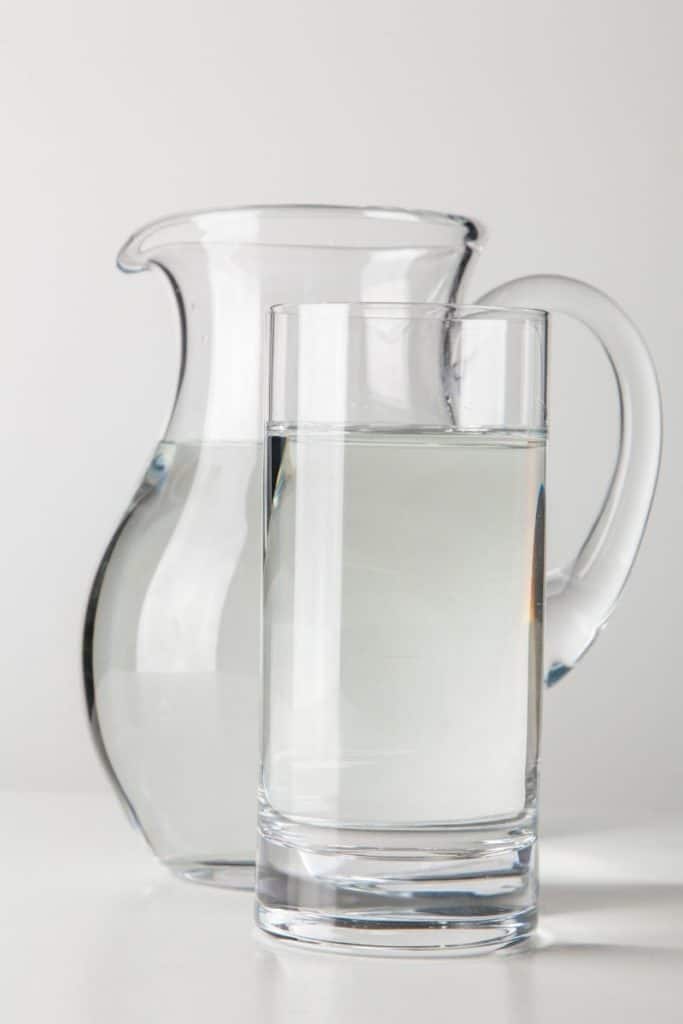
Water makes up 50-75% of our body weight depending on age and body fat! The cells in our body have water in and around them.
Here are some of water’s roles in the body:
- Helps to transport nutrients and oxygen
- Helps make saliva, tears, bile, lubricants for joints, amniotic fluid, and other specialized fluids
- Dissolves minerals and nutrients to optimize their use in the body
- Keeps exposed body parts moist, such as the eyes, mouth, nose, and skin
- Works in different chemical reactions in our body
- Regulates body temperature
- Removes toxins and waste through urine
- And for breastfeeding moms especially, water helps nourish their baby as part of the breast milk.
How Much Water Should I Drink While Breastfeeding?
When breastfeeding, the body’s water balance changes, which is a testament to how your body adapts.
The high demands on the body from breastfeeding and pregnancy warrant higher hydration needs.
Much of this is because breast milk itself is made up of 87% water!
So, obviously, you need to be taking in (more) water to continue to produce something that is a majority of water.
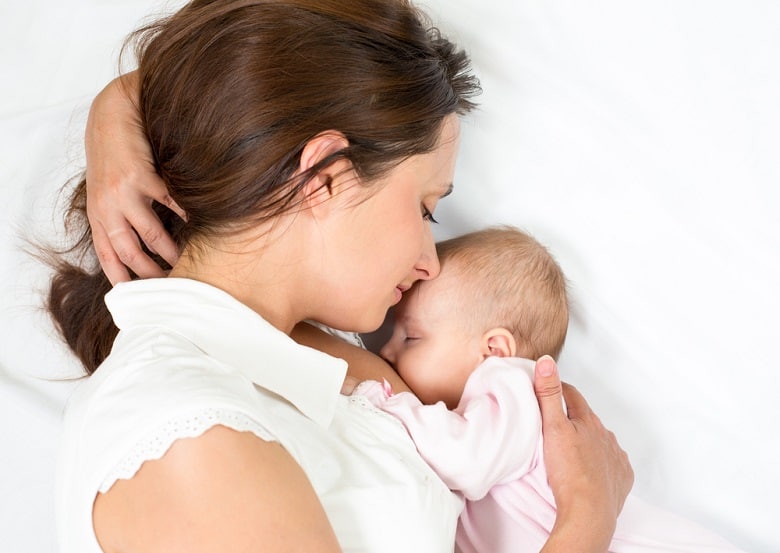
The Academy of Nutrition and Dietetics recommends having about 16 cups or 128 ounces of water a day.
In comparison, the general public recommends 8 cups of water a day, so breastfeeding mothers typically need double this.
That being said, there is no “right amount of water” for every mother, and excess fluids isn’t necessarily better either.
The amount of water a breastfeeding mother needs will depend on each person’s unique needs. This amount should be individualized by your doctor, location consultant, dietitian, etc.
Research has found that breastfeeding women lose an average of 700 mL(~24 oz) a day from breastfeeding at 8 weeks postpartum.
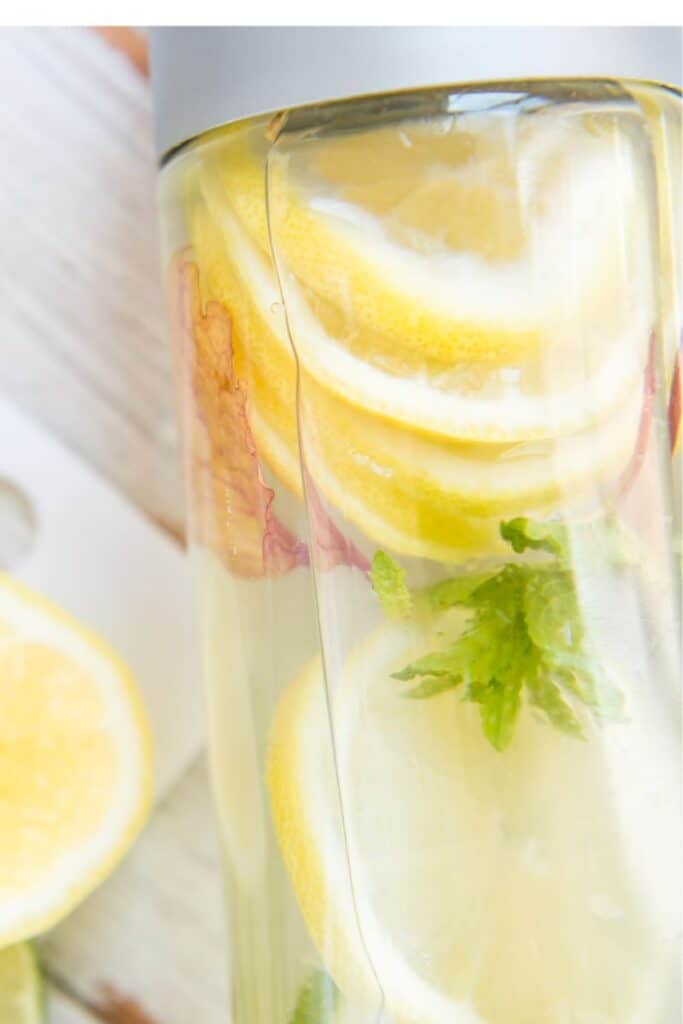
So, at a minimum, you would want to add this amount to your baseline water intake to replenish fluids lost.
However, remember that the 24 oz a day lost does not account for the water and energy needed to produce more breast milk, as well as urinating, sweating, etc.
Does Drinking Water Help with Breastfeeding?
The effect of drinking extra fluids to help with breast milk production is not well-established.
A 2015 review study concluded that there is not enough evidence to support an increased fluid intake beyond what breastfeeding mothers are likely to require to meet their physiological needs.
However, breastfeeding moms do have higher fluid needs as any lactation consultant will tell you.
Since adequate hydration aids in cognitive thinking, energy, body temperature and more, ensuring you drink enough water each day can only benefit a breastfeeding mother and baby in a breastfeeding journey.
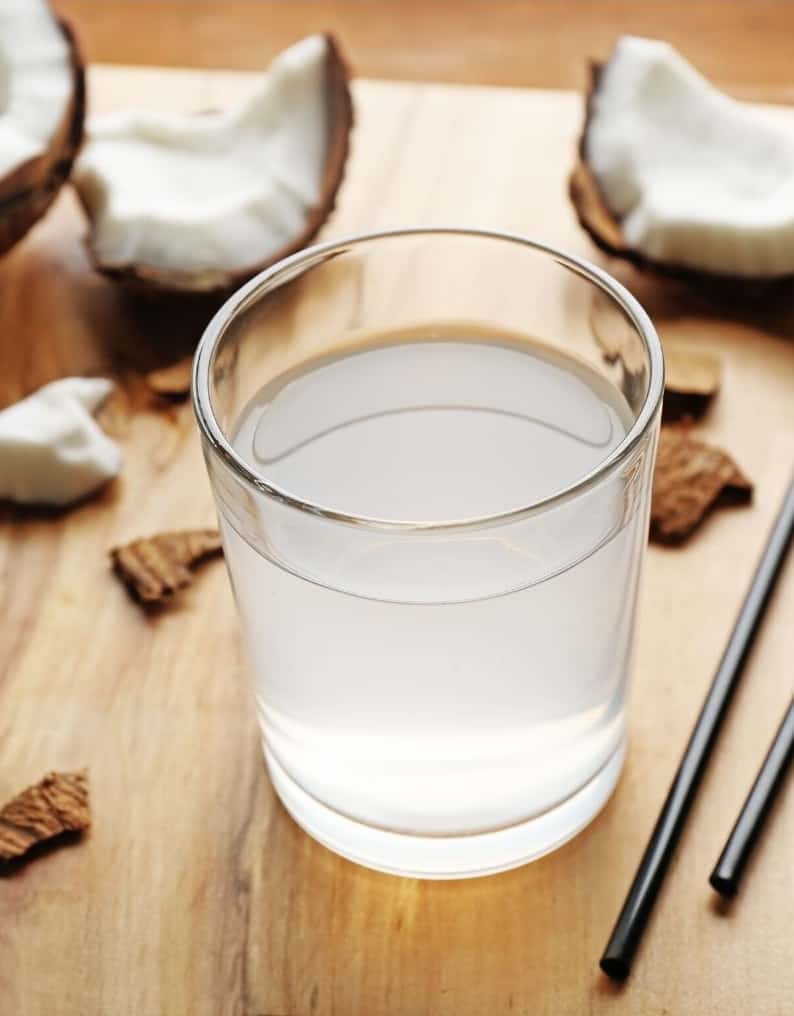
IMPORTANT TIP
Make sure to include electrolytes in your water to aid in hydration!
Tips for Staying Hydrated for Nursing
Staying hydrated refers to more than just plain water, though! Proper hydration requires electrolytes and electrolyte balance, which are also important for our body to work.
We have several recipes for pregnancy electrolyte drinks which can also help with breastfeeding hydration.
Here are some tips for staying hydrated while breastfeeding.
- Keep a water bottle(s) near you – Perhaps the best way to drink more water! That may mean one upstairs and one downstairs! I personally love to drink water along with my favorite nursing snacks – nut butter bites, Noka pouches and protein bites.
- Make sure to have a glass of water with your meals or snacks. Every time you eat, make sure to drink!
- Check-in with your thirst cues – Set a timer on your phone to check in with yourself every 60-90 minutes. If you’re thirsty, drink up!
- Make sure to drink water after each breastfeeding session.
- Add some flavor to your water by adding fresh fruits or electrolyte packets to your drink mixes – These are the best for mom fuel energy!
- Drink with a straw – Something about a straw always helps me drink water faster and more religiously.
- Add flavored collagen to your water. Collagen for breastfeeding can provide several benefits.
- Part of our liquid intake can come from a healthy diet and the foods we eat. Aim to eat ample fruits and vegetables, which have a high water content (specifically watermelon, strawberries, cucumbers, tomatoes), and other high-water foods, like yogurt and milk.
- Include other “fun” drinks, such as seltzer, clear broths or bone broth, 100% fruit juice, pregnancy smoothies, teas, and pregnancy mocktails
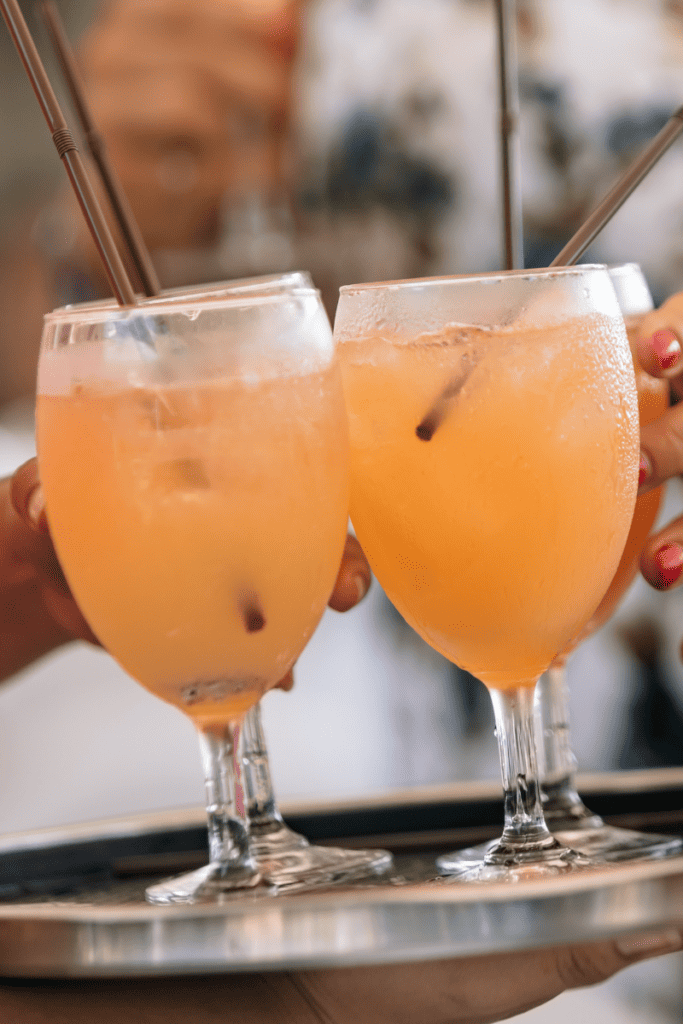
IMPORTANT
More is not always better! Drinking more than the general recommendation for nursing women has not been shown to aid in breast milk production. Excess water, just like excess anything, can be dangerous.
Best Hydration Drinks for Breastfeeding
You likely want to stick with natural options when hydrating for breastfeeding.
While soft drinks and sports drinks can provide liquids, these sugary drinks are not providing any essential minerals or clear nutrition benefits.
It’s best to focus on things like 100% fruit juices, which provide Vitamin C, smoothies that can provide antioxidants, fiber, protein and healthy fats, and even homemade electrolyte drink options.
Here are some healthy options for the best hydration drinks for breastfeeding and electrolyte-enhanced drinks.
Apple Ginger Drink
Ginger can be helpful for dealing with any nausea. I love the taste of ginger, or ginger beer, and find it a fun way to spruce up the flavor of drinks.
Recipe: 6 oz Apple Juice + 6 oz Water + 1 Tablespoon Ginger Juice + 1/8 Teaspoon Salt
Cranberry Orange
This is a great one that is high in Vitamin C and potassium, an important electrolyte. Orange juice has about the same amount of potassium as a banana, which is famously rich in the micronutrient.
Even more so, it also contains calcium and magnesium which are also important electrolytes.
Cranberry juice is awesome for gut health and has been known to prevent urinary tract infections, balance healthy bacteria, and benefit digestive health in general. All of which are important during pregnancy and postpartum, when things tend to slow down.
Recipe: 8 oz Orange Juice + 4 oz Cranberry Juice + 1 /2Tablespoon Honey (optional) + 1/8 Teaspoon Salt
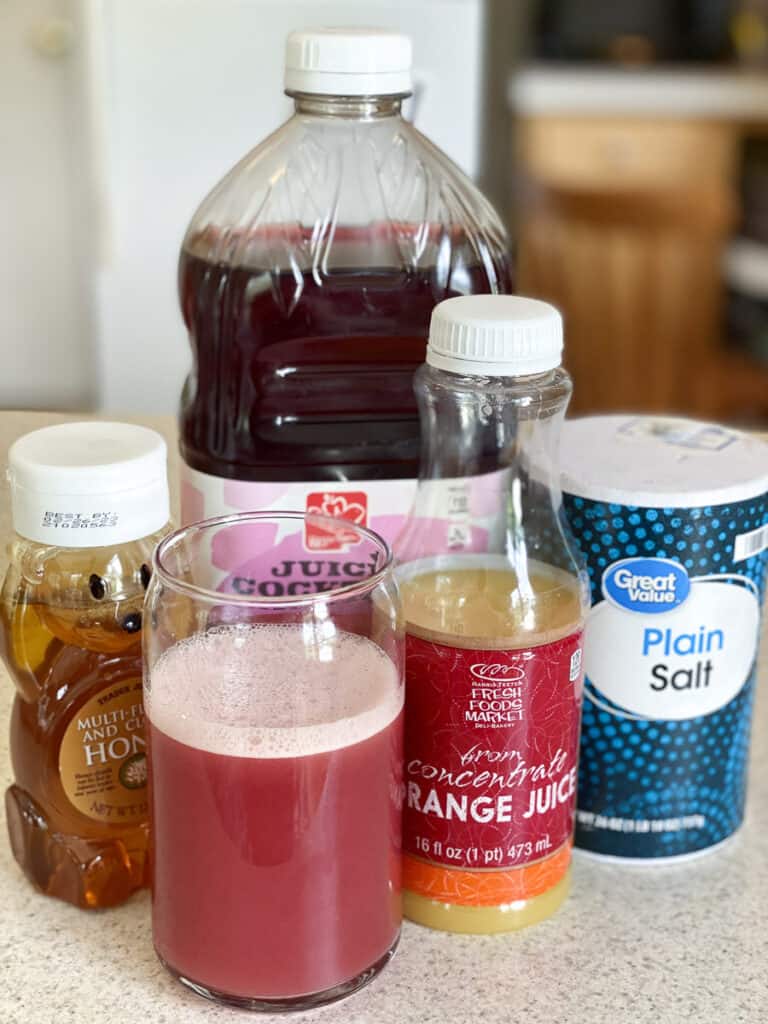
Orange Lime Seltzer
This is one of my favorites that I demonstrated in this reel.
You combine your favorite coconut water (try one with no added sugars), orange juice, lime selzer and a splash of lime juice.
The coconut water gives us potassium! Many people think coconut water is high in “electrolytes” but it’s actually missing sodium, but it is a great source of potassium.
The orange juice offers some Vitamin C and potassium, and if fortified, Vitamin D and calcium. I love the seltzer for extra bubbles, and I’ll usually add some sea salt in there to help with absorption!
Recipe: 4 oz Orange Juice + 4 oz Coconut Water + splash lime juice + 2 oz lime seltzer + 1/8 Teaspoon Salt
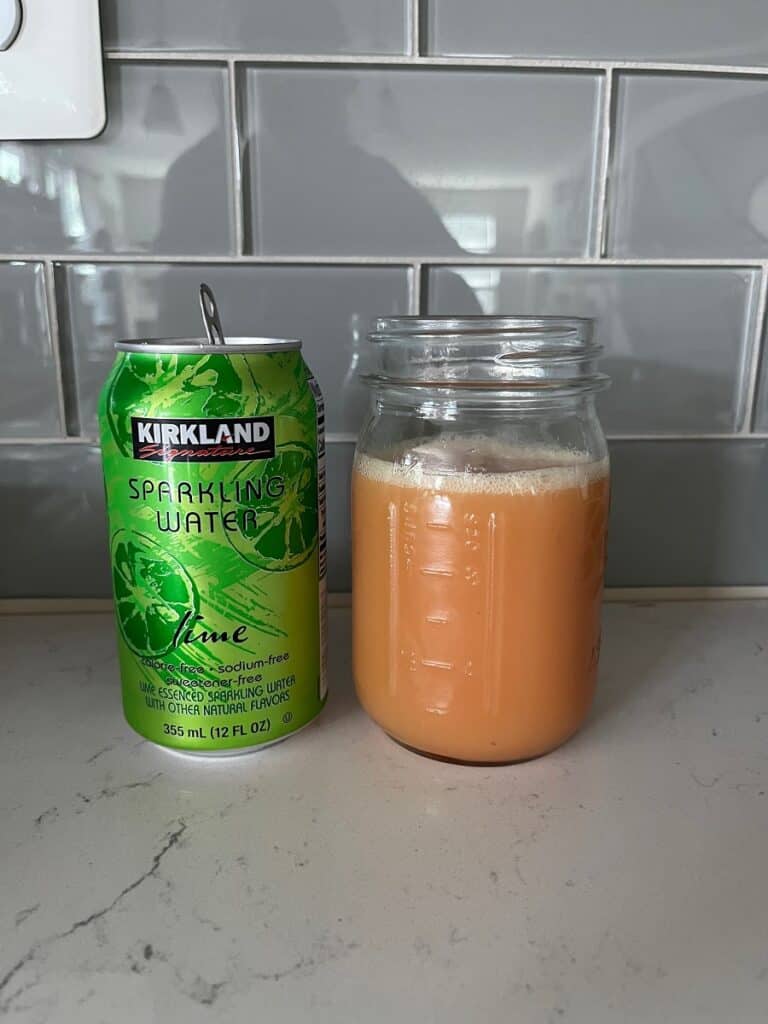
How to Know If You’re Getting Enough Water
The easiest way to tell if you are drinking enough water is by looking at the color of your urine.
- If urine is a pale yellow color or almost clear, you are probably well-hydrated.
- If your urine is completely clear, you may not be retaining all your fluids and might need some electrolytes, such as sodium, to help with water absorption.
- If you are experiencing dark yellow urine and not urinating as usual, this can be a sign of dehydration and a signal to drink more fluids.
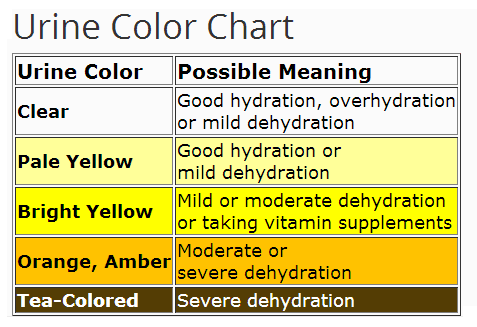
Note that this urine chart is not a diagnostic tool for dehydration, but a good guide for you to keep up with.
If you are concerned about dehydration and have symptoms please seek medical attention or speak with your doctor.
Signs of Dehydration
Some symptoms of dehydration to be aware of include:
- Fatigue
- Feeling weak
- Low blood pressure
- Dizziness
- Chapped lips
- Feeling thirsty
- Cramps
- Dry mouth/skin
- Headache
FAQ About Breastfeeding and Hydration
Alcohol and Breastfeeding
Can you drink alcohol when breastfeeding?
According to the Academy of Nutrition and Dietetics it is best to refrain from alcohol when breastfeeding or talk about it with a health care provider. There is no level of alcohol in breast milk that is considered safe for a baby.
However, according to research published in Basic and Clinical Pharmacology and Toxicology, alcohol is excreted into breast milk in concentrations similar to those in maternal blood, which means that the amount of alcohol ingested by the children through breast milk is a fraction of the amount ingested by the mothers.
If you do choose to have one alcoholic drink, it is recommended to nurse first, then have the drink. Or, have a drink and then wait until the alcohol has completely cleared your breast milk before nursing (for infants at least 3 months of age).
This typically takes 2-3 hours for a standard drink: 12 ounces (355 milliliters) of 5% beer, 5 ounces (148 milliliters) of 11% wine or 1.5 ounces (44 milliliters) of 40% liquor, depending on your body weight.
You can also consider pumping milk before drinking alcohol to feed your baby later.
IMPORTANT
Alcohol can lead to dehydration, so to be sure to drink a glass of water with your beverage.
Caffeine and Breastfeeding
Can you have caffeine when breastfeeding?
Caffeine is transmitted through breastmilk so it is another thing for breastfeeding mothers to think about. However, evidence on how much breastfeeding mothers can have is limited.
The Special Supplemental Nutrition Program for Women, Infants, and Children (otherwise known as WIC) recommends to stick to 2 small cups of caffeine a day.
If you notice any changes with your baby, such as increased fussiness or baby or you not sleeping well, you could aim to limit caffeine, or even opt for decaf coffee.

The bottom line is that hydration IS important for breastfeeding!
Excess hydration, above your personal needs, is not better, however, being aware of your thirst levels and drinking more than normal, is important to stay adequately hydrated.
References:
- Zhou Y, Zhu X, Qin Y, et al. Association between total water intake and dietary intake of pregnant and breastfeeding women in China: a cross-sectional survey. BMC Pregnancy Childbirth. 2019;19(1):172. Published 2019 May 15. doi:10.1186/s12884-019-2301-z
- Martin CR, Ling PR, Blackburn GL. Review of Infant Feeding: Key Features of Breast Milk and Infant Formula. Nutrients. 2016;8(5):279. Published 2016 May 11. doi:10.3390/nu8050279
- Zhou Y, Zhu X, Qin Y, et al. Association between total water intake and dietary intake of pregnant and breastfeeding women in China: a cross-sectional survey. BMC Pregnancy Childbirth. 2019;19(1):172. Published 2019 May 15. doi:10.1186/s12884-019-2301-z
- Ndikom CM, Fawole B, Ilesanmi RE. Extra fluids for breastfeeding mothers for increasing milk production. Cochrane Database Syst Rev. 2014 Jun 11;2014(6):CD008758. doi: 10.1002/14651858.CD008758.pub2. PMID: 24916640; PMCID: PMC10547928.
- Neville MC, Keller R, Seacat J, et al. Studies in human lactation: milk volumes in lactating women during the onset of lactation and full lactation. Am J Clin Nutr. 1988;48(6):1375-1386. doi:10.1093/ajcn/48.6.1375
- Haastrup MB, Pottegård A, Damkier P. Alcohol and breastfeeding. Basic Clin Pharmacol Toxicol. 2014 Feb;114(2):168-73. doi: 10.1111/bcpt.12149. Epub 2013 Nov 7. PMID: 24118767.
- Bauer J, Gerss J. Longitudinal analysis of macronutrients and minerals in human milk produced by mothers of preterm infants. Clin Nutr. 2011;30(2):215-220. doi:10.1016/j.clnu.2010.08.003
- Bardosono S, Prasmusinto D, Hadiati DR, et al. Fluid Intake of Pregnant and Breastfeeding Women in Indonesia: A Cross-Sectional Survey with a Seven-Day Fluid Specific Record. Nutrients. 2016;8(11):651. Published 2016 Nov 22. doi:10.3390/nu8110651
- Nursing Your Baby – What You Eat and Drink Matters. https://www.eatright.org/health/pregnancy/breastfeeding-and-formula/nursing-your-baby-what-you-eat-and-drink-matters
- USDA: Nutrition While Breastfeeding. https://wicbreastfeeding.fns.usda.gov/nutrition-while-breastfeeding
Support Bucket List Tummy



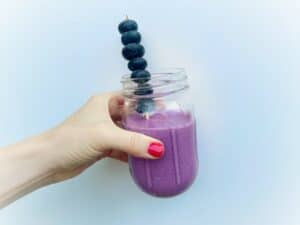
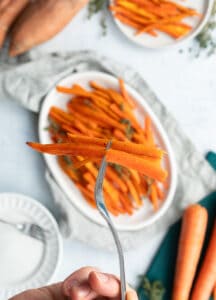
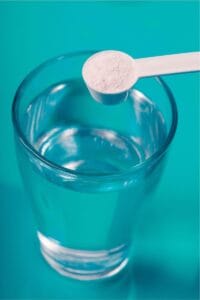

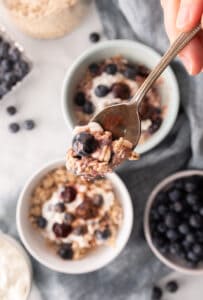
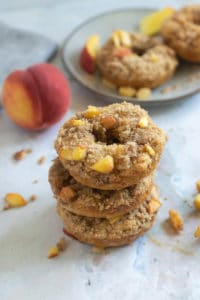



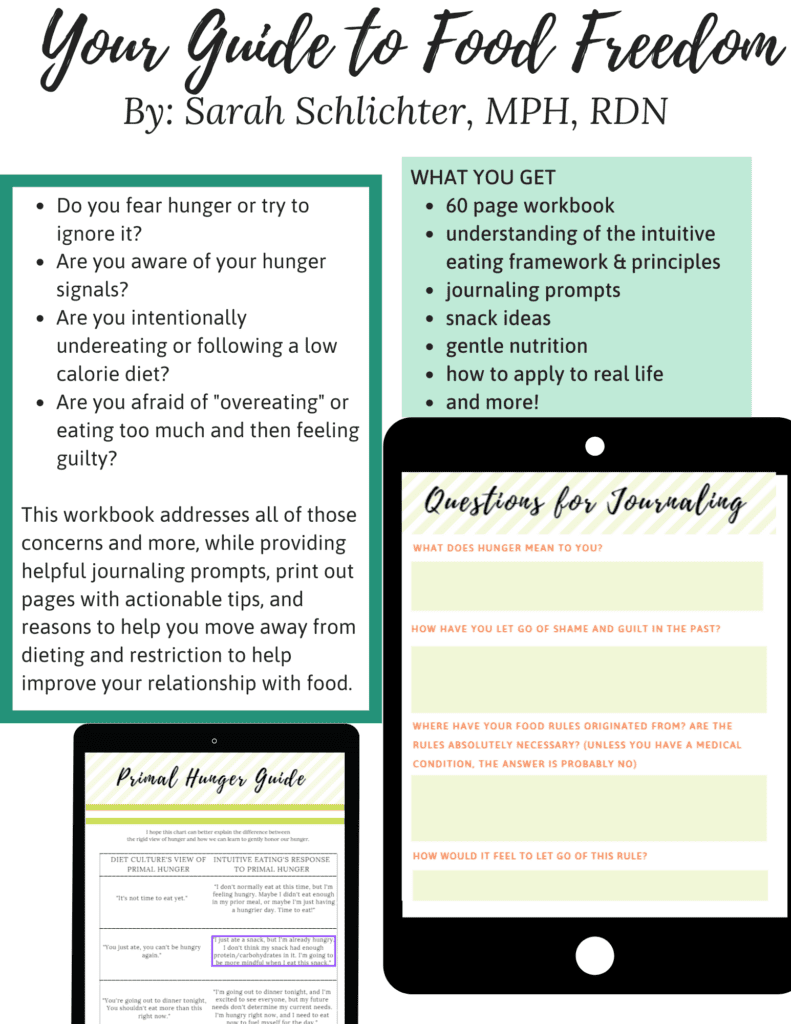

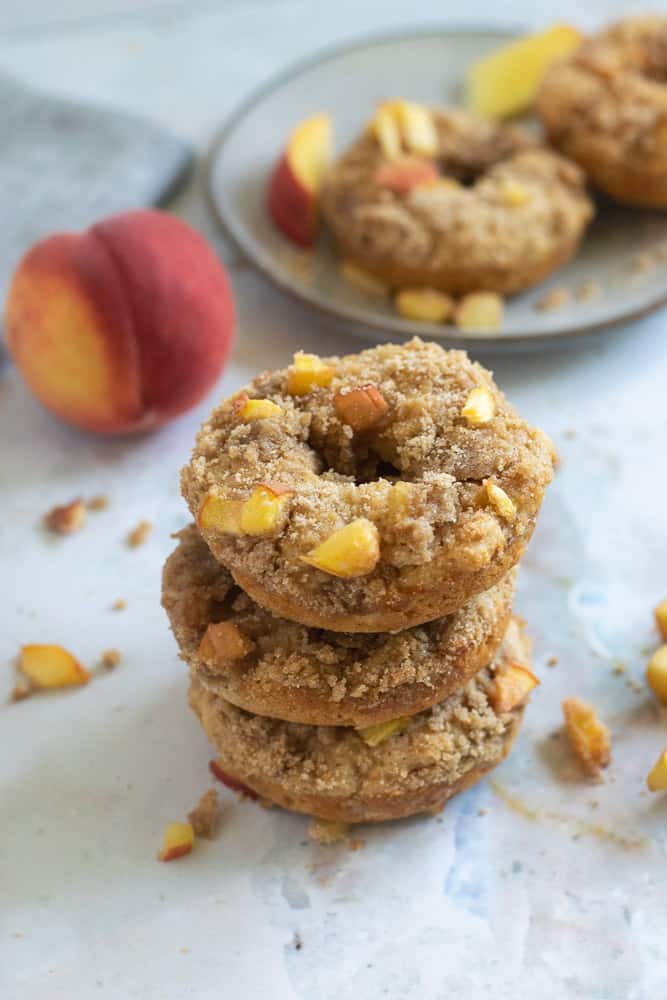


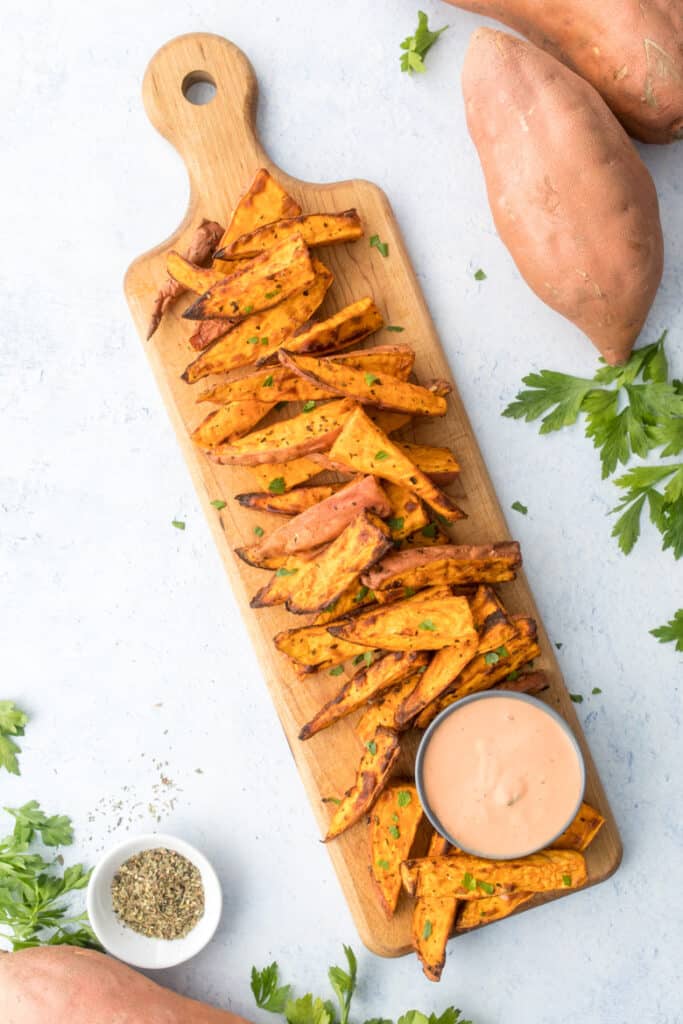
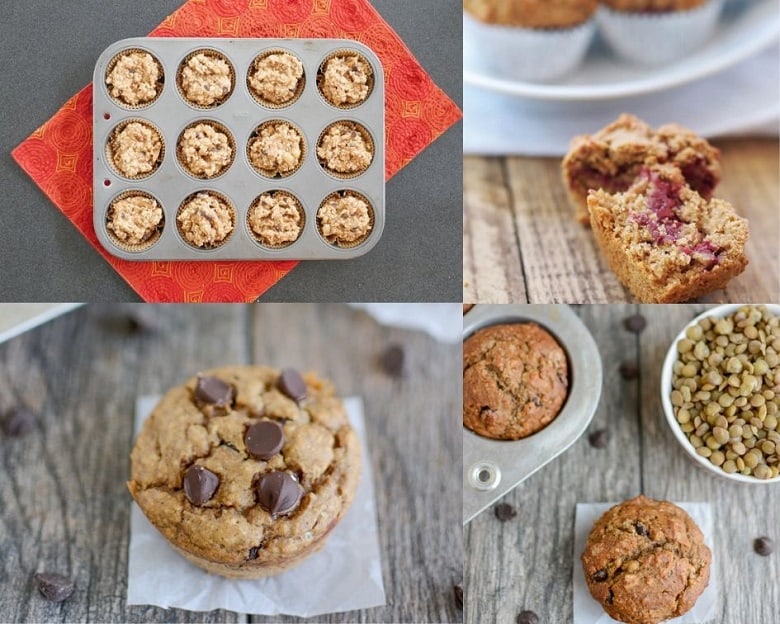

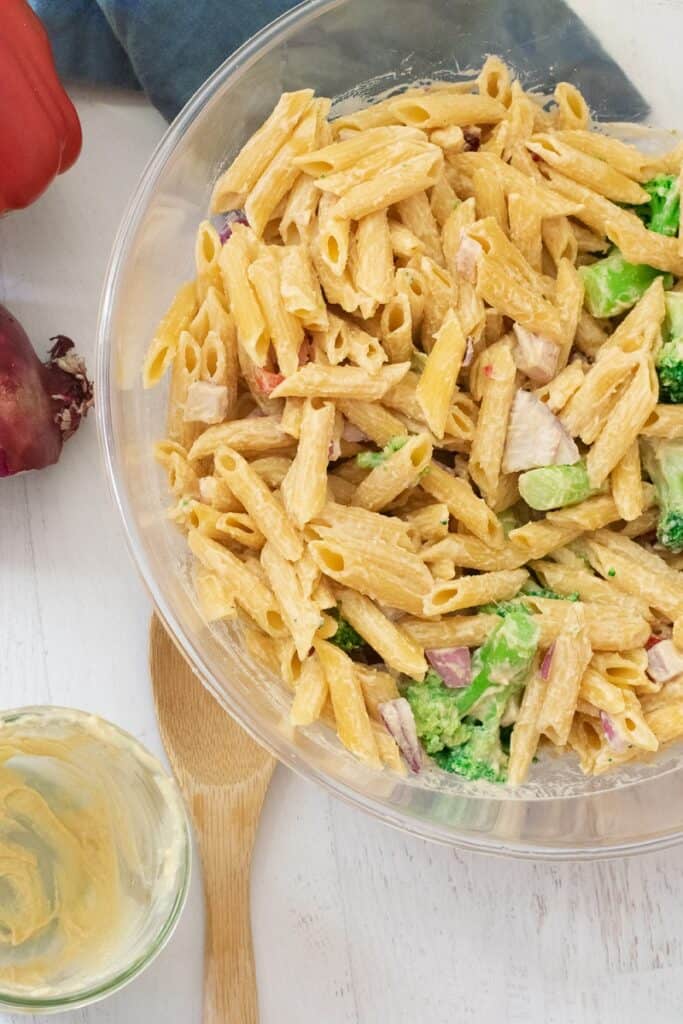
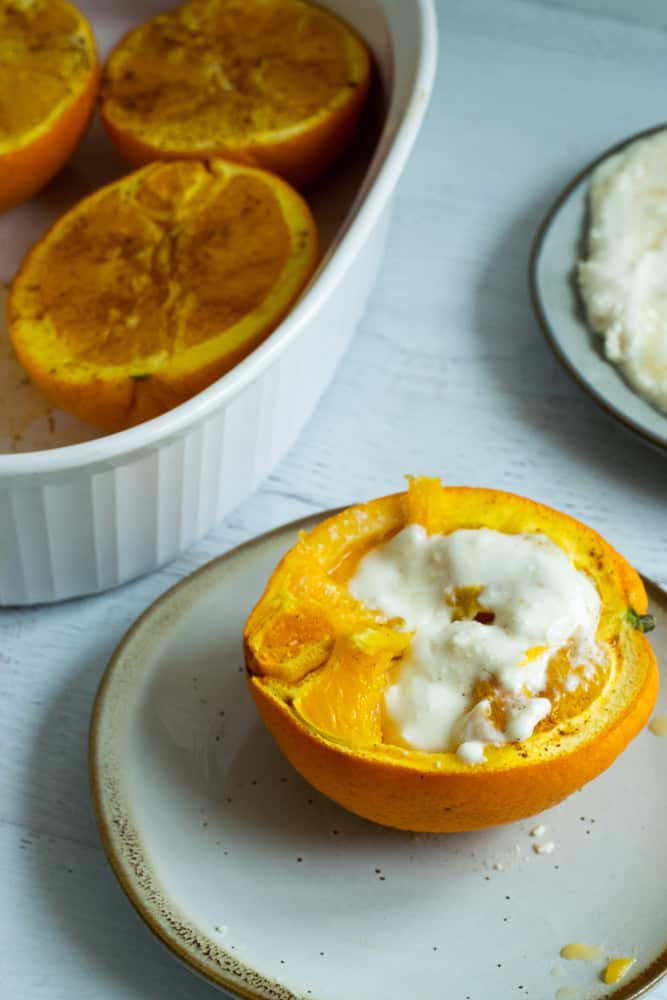
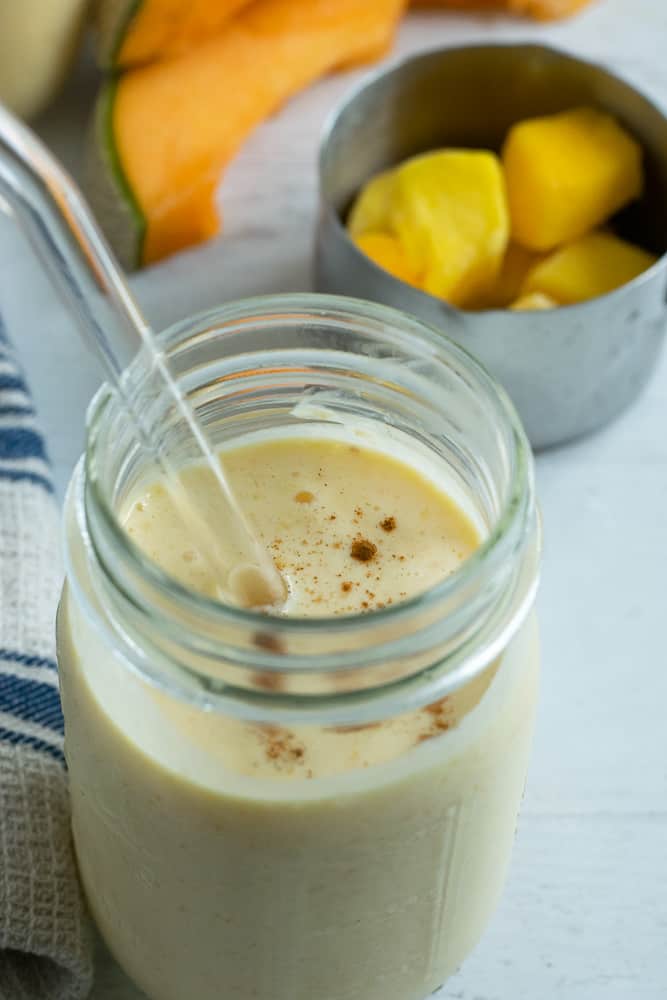
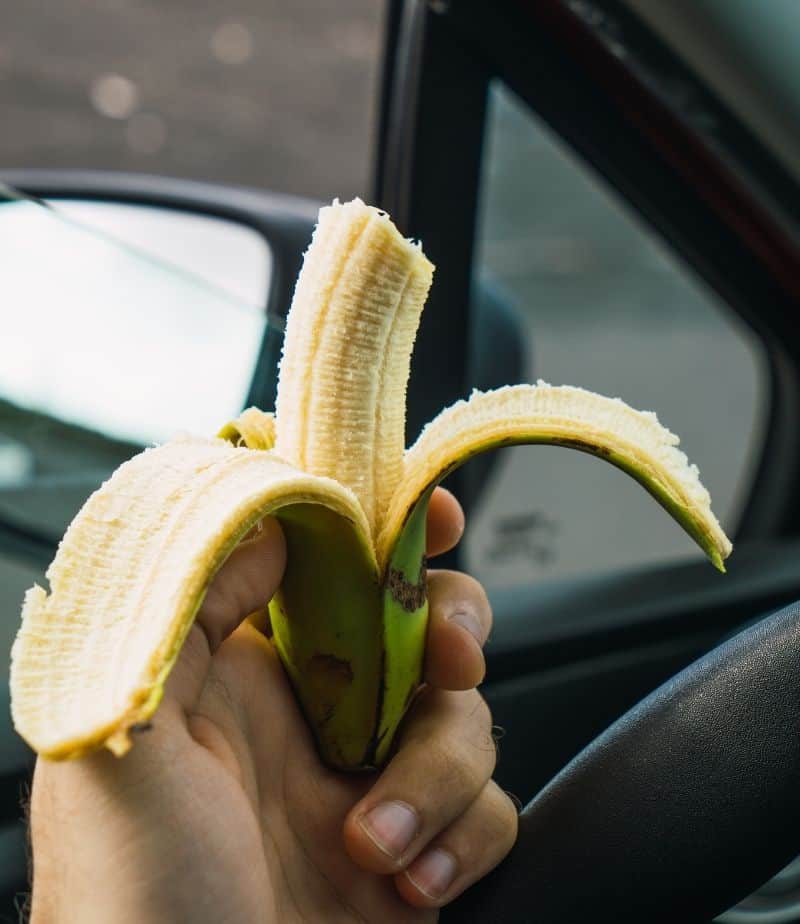
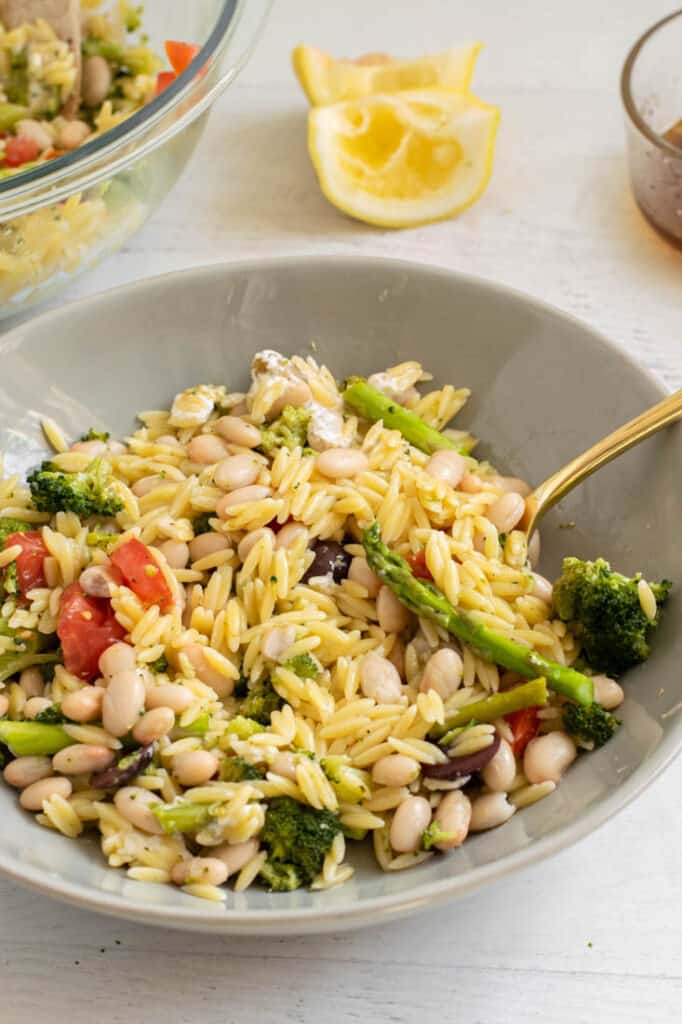
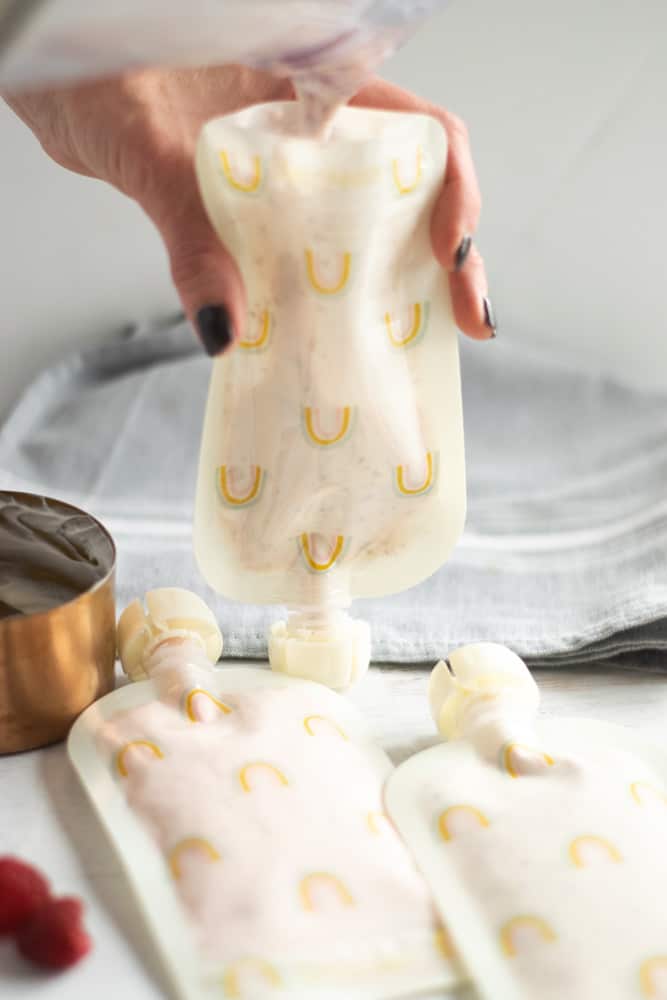
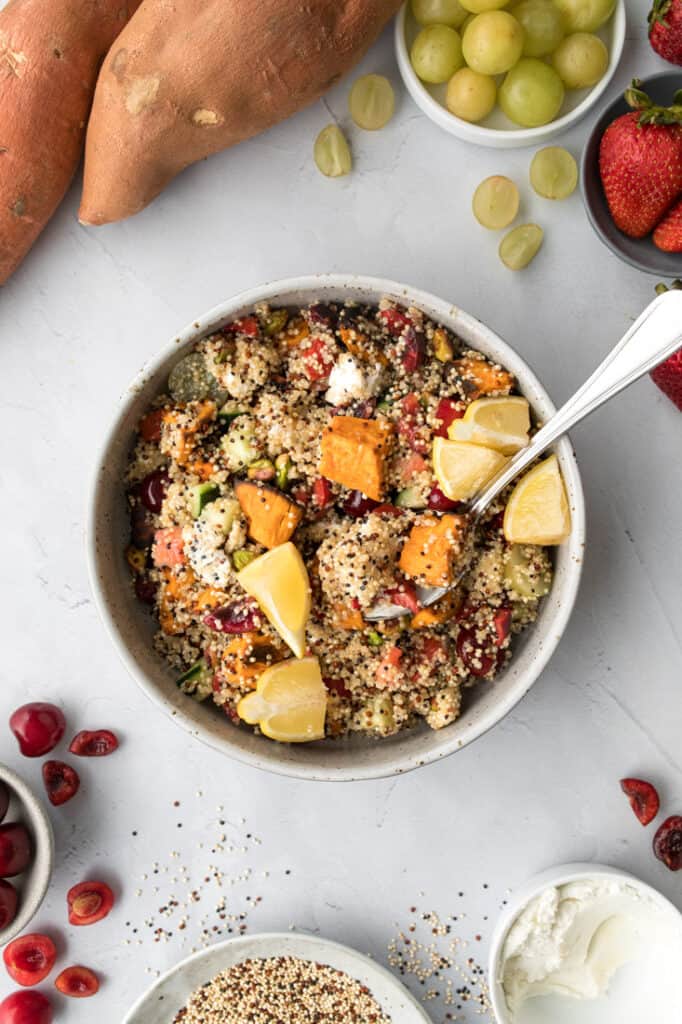

Like This Content?
Support Bucket List Tummy